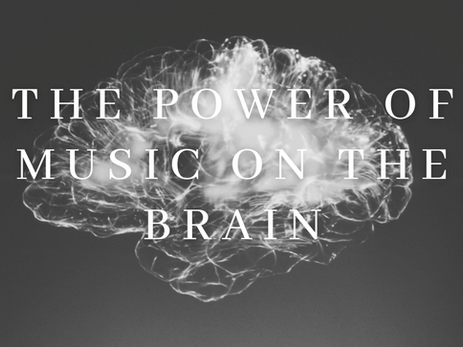Uncategorized
The Effects Of Music On The Brain
From playing an instrument to simply listening to a record we love, music has many benefits for our physical, mental and emotional health.

Earlier this year, I participated in a brain imaging experiment to study how the brain reacts during music performance. The study was carried out by Jasmine Tan Wei Rou at Goldsmiths, University of London.
Being in a state of flow is the mental state in which one is fully immersed in a feeling of energised focus, full involvement, and enjoyment when performing an activity. Attention is so undivided that one becomes unaware of things such as noise, time, hunger or tiredness. This concept was named by Mihály Csíkszentmihályi and has been referenced in a variety of fields, including music.
https://video.wixstatic.com/video/255d68_8c794ff2d0f348b58bd218b035723fb7/1080p/mp4/file.mp4
For the purpose of this experiment, the participants were required to perform three pieces. The first piece is one that induces a state of flow, the second piece is of equal liking to the first but does not induce a state of flow, and the third piece is of equal difficulty to the first but does not induce a state of flow. I performed three original songs: Garden Green, In The Woods and Espresso-Oh.
The researcher noted that I am very still for a singer even during flow. She was able to measure my brain waves while I was singing, which she had not been able to do for many other singers as the facial muscle activity, breathing, and other movements are more easily picked up than brain waves.
She also noted that there are a lot of alpha waves in the frontal areas of the brain when I perform.
The more alpha waves present, the less active the brain is. This shows that when we are doing something we know very well, such as playing music, we do not involve the frontal areas of the brain as much. These areas have been linked to self-monitoring and may be involved in making oneself feel self-conscious during a performance. Feeling self-conscious would directly cause problems during a performance so turning off the activity of the frontal areas of the brain is like getting out of your own way, enabling smoother and more confident performances.
It’s not only playing music that can affect our brain waves, listening to it can cause changes to our mind as well.
Music can release Dopamine which is a neurotransmitter that allows you to feel happy. This response happens rapidly and so the brain can anticipate the most desirable parts in familiar music and therefore prepare itself with an early dopamine rush. Beyond the feeling of satisfaction, listening to music is arguably associated with immunity-boosting antibodies and cells that will protect against bacteria, making you physically healthier as well as just mentally.
Music Can Boost Brain Chemicals

One of the ways music can determine your mood is by stimulating certain chemicals within your brain.
Listening to music increases dopamine (as explained above) which is the brain’s “motivation molecule”. It is the same brain chemical that gets released when eating chocolate and even when you get that runner’s high after a long workout.
When listening to a playlist, you can increase dopamine further by choosing shuffle mode. When one of your favourite songs unexpectedly comes up, it triggers an extra dopamine boost as your brain gets excited by the unexpected.
Listening or playing live music stimulates your oxytocin level which is extremely important as it helps you bond with and trust others, an integral lesson that must be learnt in life. There’s evidence that the oxytocin released during music can make people more generous and trustworthy.
Productivity and Creativity

It has been said that when office workers are allowed to listen to their preferred choice of music, they complete tasks quicker and come up with better ideas than those who have no control over their sound environment. This is because background music enhances performance on cognitive tasks which improves accuracy and enables the completion of repetitive tasks more efficiently.
The effects of music on productivity have been already studied in some specific occupations; for example, software developers were happier and produced better work more efficiently when listening to music whilst surgeons who listened to music whilst operating were less stressed out and worked faster and more accurately.
Music Therapy
https://www.youtube.com/watch?v=EK5qqYYxjn4
Music therapists use music to address their patients’ physical, emotional, cognitive, and social needs and have proven to have the ability for treating people with many mental disorders such as autism, dementia, Alzheimer’s, anxiety and depression.
Remarkably, music therapy has the most impact on the lives of Alzheimer’s patients. Music therapy has been very successful at getting through to patients as to when hearing familiar music, patients often visibly “light up” and can sometimes even sing along. It can be argued that musical memories outlast any others.
For most patients, music therapy is the highlight of the patient’s day as it does more than help patients remember but it helps alleviate depression, anxiety, and agitation while improving brain function and overall quality of life.
Whilst music massively helps Alzheimer patients, stroke patients also seem to gain benefits too. Those who listened to music in the early stages after a stroke showed an improvement in recovery, according to a 2008 study. Three months after the stroke, the verbal memory improved from the first week by 60 per cent in music listeners. Because of this, in 1973 a music-based treatment called Melodic Intonation Therapy was developed to help stroke survivors be able to communicate again which is an inspirational thing to succeed at. The purpose of the therapy is to convert singing into speech to allow the ease of pronunciations.
Brain scans have identified that there is a difference in brain structure between musicians and non-musicians. The corpus callosum, (nerve fibres connecting the two sides of the brain), is larger in musicians than those who don’t play any instrument. Also, the areas involving movement, and hearing abilities appear to be larger in professional keyboard players. Even -brief periods of musical training can have long-lasting benefits. A 2013 study found that those with moderate musical training were able to increase resilience to any age-related decline in hearing.
So, as we can see, whether you are listening to music or playing an instrument, there are so many neurological changes that can happen within your brain to create positive changes to your body.

